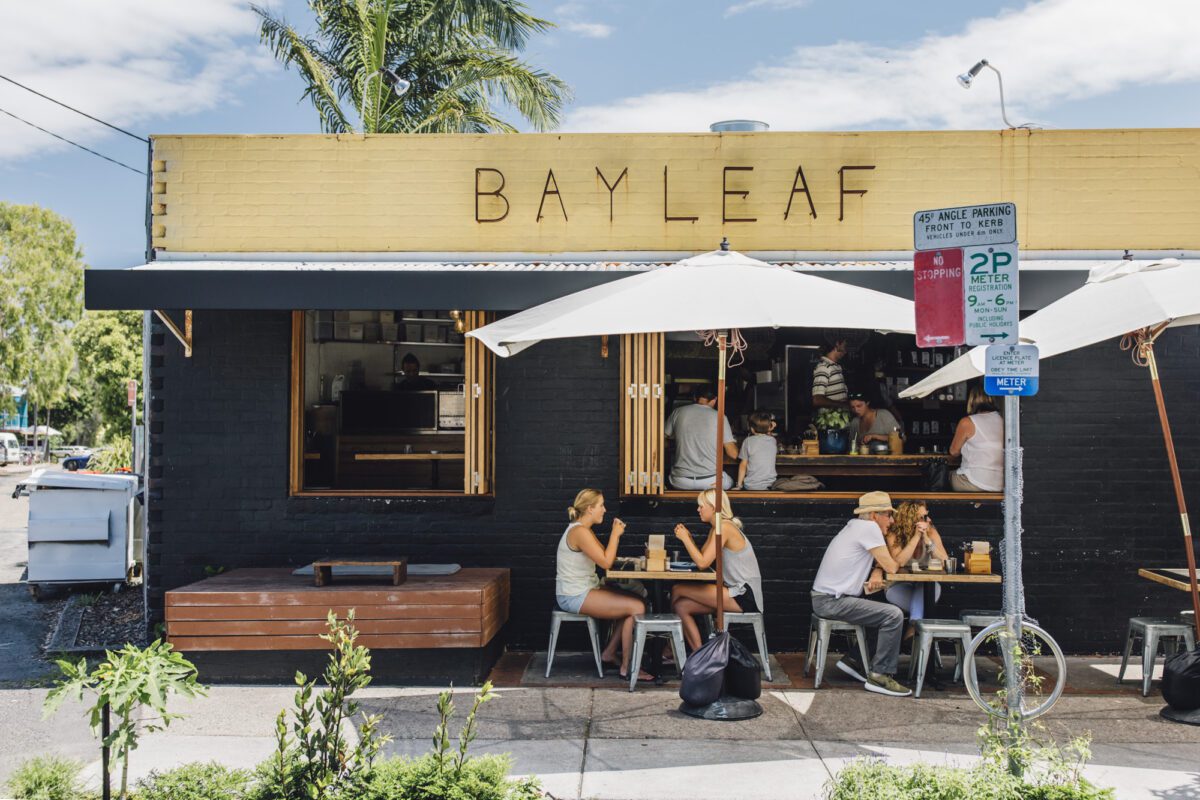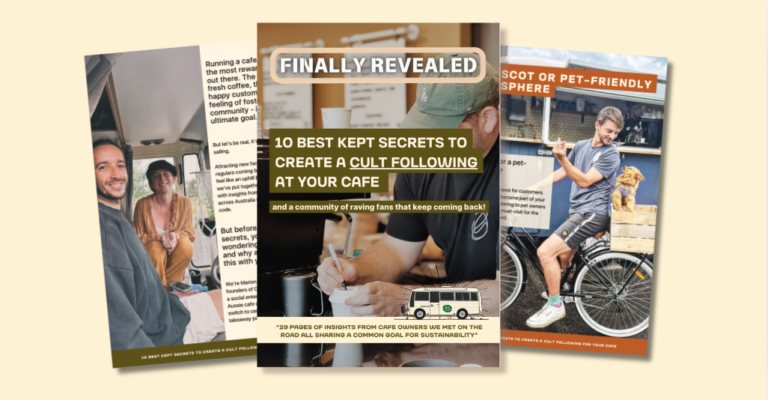5 Coffee Takeaway Cup Composting Myths Busted for Cafes
If you run (or are about to!) a café, you’ve probably been told a dozen different “facts” about coffee takeaway cup and composting. Some sound too good to be true. Others are misleading. And in an industry drowning in greenwashing, it’s no wonder café owners are confused about what’s actually good, what’s actually compostable, how is it compostable, and where.
Let’s bust the 5 biggest myths so you can make the right call for your business, your customers, and the planet.
Myth 1: All “Compostable” Cups Can Go in the Compost Bin
Busted: Not all compostable cups are created equal.
Most cups labelled “compostable” in Australia are actually commercially compostable and certified AS 4736. That means they need an industrial facility with high heat, moisture and controlled conditions to break down. If they end up in your customer’s home compost or the general waste bin, they’ll stick around just like regular cups.
What to do: Look for the AS 5810 Home Compostable certification like our Compost After Coffee cups if you want cups that can break down in your customer’s backyard compost.
Myth 2: Biodegradable = Compostable
Busted: Biodegradable is marketing fluff
“Biodegradable” simply means something will break down eventually, without a defined timeframe or conditions. It could take 10 weeks or 10 years and it could still leave microplastics behind. Certified compostable packaging, on the other hand, is tested to break down within a set period when composted and leave no toxic residue.
What to do: Always ask your supplier for composting certifications, not just vague claims or sustainability or complex ‘biodegradable’ jargon.
Myth 3: Customers Know How to Dispose of Their Coffee Takeaway Cup
Busted: Most don’t and it’s not their fault.
Without clear education, your coffee takeaway cup could end up in landfill. If your packaging needs special composting conditions (like PLA lined hot cups and PLA clear cups), customers should know that up front. A little signage or a quick conversation at the counter can go a long way if your cup supplier does not have proper labelling on their products.
What to do: Train your staff to explain your cup choice in 10 seconds. Something like “These are certified home compostable. They’ll break down in your home compost or green bin with food scraps (based on your Council)!”
Myth 4: Compostable Cups Are Always the Sustainable Choice
Busted: Choosing compostable isn’t a one-fit-all solution
If your customers do not know
- your cups can be composted
- how to compost them
- don’t have access to the right composting method
Your biocups could still be heading straight to landfill. That’s frustrating as ultimately ‘compostable’ products are more expensive than plastic. Worse, many people assume coffee cups are recyclable and pop them in the yellow bin, contaminating the whole recycling stream and causing a headache to recyclers. Some cups can also contain PFAS (forever chemicals) that can leach toxins into compost.
What to do: Choose certified PFAS-free home compostable cups = certified to AS5810 and make sure your waste system matches your packaging choice.
Myth 5: Compostable Cups Cost Too Much
Busted: Not when you look at the bigger picture.
Yes, certified home compostable cups can cost more than plastic upfront. But they help you cut down on waste fees, boost your business credibility and sustainability credentials, and win loyal customers who value real environmental action over greenwashing. In a competitive café scene, that can pay off fast.
What to do: Think of it as an investment in your brand and your community’s trust, not just an extra cost of goods.
(You’ll attract the right talents too!)
Compostable coffee takeaway cup isn’t just about the cup, it’s about the whole system. Switching to ‘compostable’ is not going to make your business sustainable if you haven not careful considered your environment.
If your cups are going to landfill, you’re not doing anything better, you are simply buying a more expensive product. Compostable packaging have been designed to be composted in order to close the loop.
When choosing certified home compostable products, it needs to come with the education it requires to empower your customers to compost, and make sure there is a disposal pathway that actually works for both you and them.
When cafes get this right, composting can make a BIG difference!
About the author:
Marion is a French Australian entrepreneur, profoundly interested in the composting industry. Her words are her own thoughts and come from her research and learning. Although she quotes and sources the information she shares, Marion is not a scientist or a researcher and her opinions should not be understood as a scientific truth.
Through her findings and experience in the industry, she is attempting to support hospitality businesses and producers in their search of alternative choices to single-use and other types of plastic packaging. You should always do your own research to best inform yourself.
Share this article :
Compost Club Blog
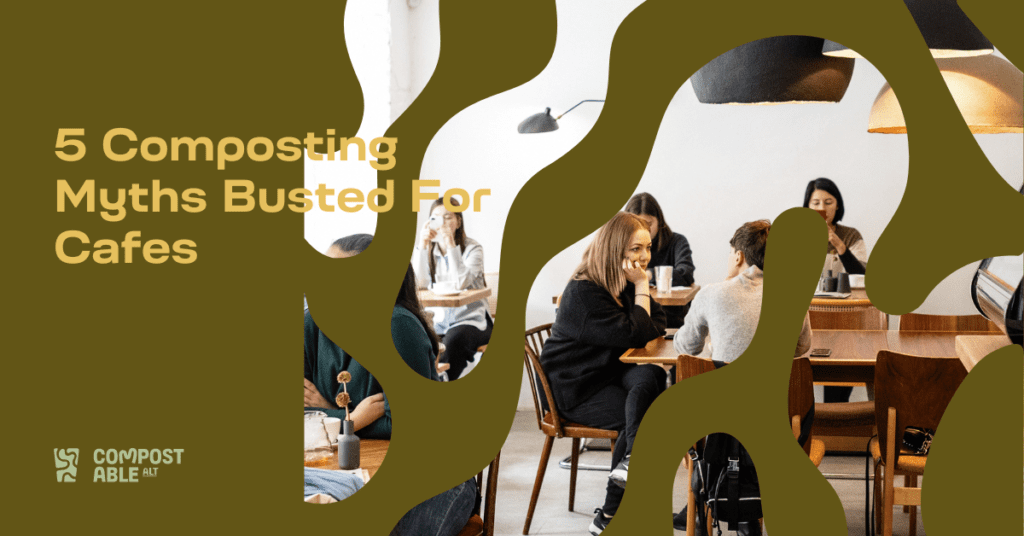
5 Coffee Takeaway Cup Composting Myths Busted for Cafes
Do you offer takeaway coffees? Let’s bust the 5 biggest coffee takeaway cup myths so you can make the right call for your business, your customers, and the planet.
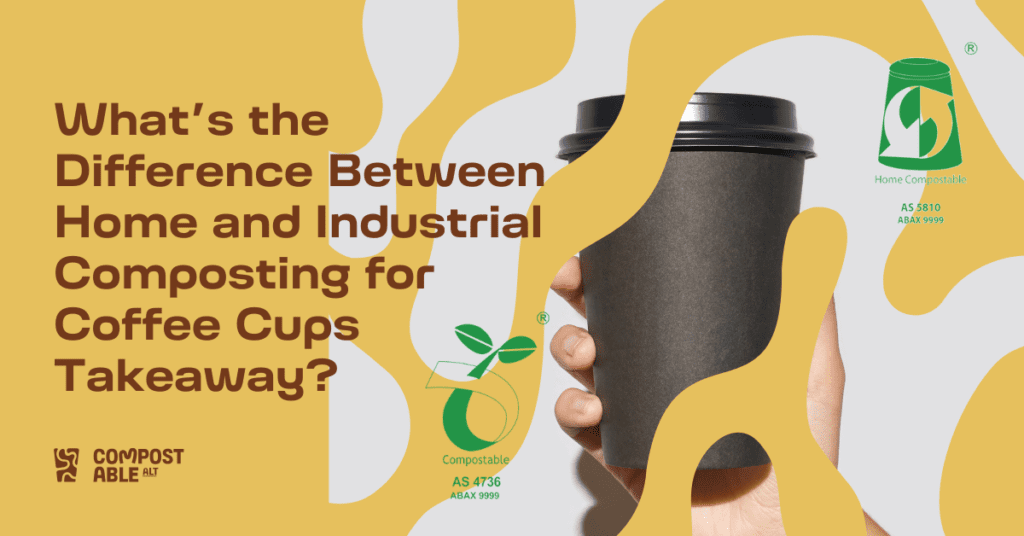
What’s the Difference Between Home and Industrial Composting for Coffee Cups Takeaway?
If you’re a café owner, a sustainability nerd, or just someone trying to do the right thing, knowing the difference between home and industrial composting is key to making better packaging decisions.
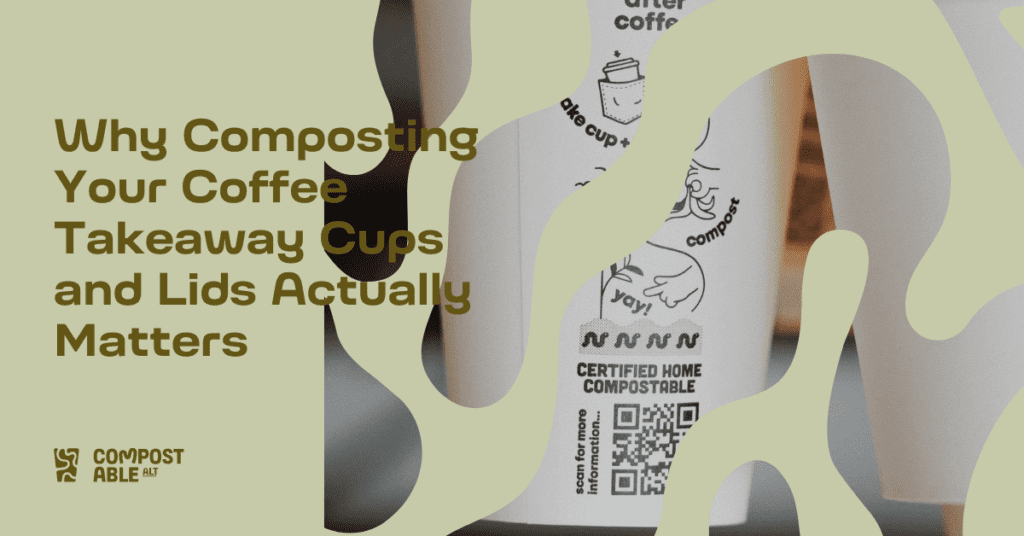
Why Composting Your Coffee Cups Takeaway Actually Matters
If you’re like most Aussies, coffee cups takeaway are part of your daily routine. Maybe it’s your morning long black from the local cafe or an arvo flat white on the go. But what happens after you’ve finished your drink?

